- Home
- Linda Lael Miller
The Rustler
The Rustler Read online
The Rustler
Stone Creek Book 3
Linda Lael Miller
Dear Reader,
Those wonderful Yarbro men are back—this time it’s Wyatt, down on his luck after a lifetime of rustling and robbing trains, and determined to make a fresh start with Sarah Tamlin, the spirited banker’s daughter and a woman with a past.
I also wanted to write today to tell you about a special group of people with whom I’ve recently become involved. It is The Humane Society of the United States (HSUS), specifically their Pets for Life program.
The Pets for Life program is one of the best ways to help your local shelter—that is to help keep animals out of shelters in the first place. Something as basic as keeping a collar and tag on your pet all the time, so if he gets out and gets lost, he can be returned home. Being a responsible pet owner. Spaying or neutering your pet. And not giving up when things don’t go perfectly. If your dog digs in the yard, or your cat scratches the furniture, know that these are problems that can be addressed. You can find all the information about these common problems—and many others—at www.petsforlife.org. This campaign is focused on keeping pets and their people together for a lifetime.
As many of you know, my own household includes two dogs, two cats and four horses, so this is a cause that is near and dear to my heart. I hope you’ll get involved along with me.
May you be blessed.
With love,
Praise for the works of Linda Lael Miller
“Loaded with hot lead, steamy sex and surprising plot twists.”
—Publishers Weekly on A Wanted Man
“This spin-off of The Man from Stone Creek will more than satisfy Miller’s fans and draw in new readers seeking a realistic, powerful western.”
—Romantic Times BOOKreviews on A Wanted Man
“Miller’s prose is smart, and her tough Eastwoodian cowboy cuts a sharp, unexpectedly funny figure in a classroom full of rambunctious frontier kids.”
—Publishers Weekly on The Man from Stone Creek
“[Miller] paints a brilliant portrait of the good, the bad and the ugly, the lost and the lonely, and the power of love to bring light into the darkest of souls. This is western romance at its finest.”
—Romantic Times BOOKreviews
on The Man from Stone Creek
“Intrigue, danger and greed are up against integrity, kindness and love in this engrossing western romance. Miller has created unforgettable characters and woven a many-faceted yet coherent and lovingly told tale.”
—Booklist on McKettrick’s Choice (starred review)
“An engrossing, contemporary western romance…Miller’s masterful ability to create living, breathing characters never flags…combined with a taut story line and vivid prose, Miller’s romance won’t disappoint.”
—Publishers Weekly on McKettrick’s Pride (starred review)
“Linda Lael Miller creates vibrant characters and stories I defy you to forget.”
—#1 New York Times bestselling author Debbie Macomber
LINDA LAEL MILLER
THE RUSTLER
A Stone Creek Novel
Also available from
LINDA LAEL MILLER
and HQN Books
The Stone Creek series
The Man from Stone Creek
A Wanted Man
The McKettricks series
McKettrick’s Choice
McKettrick’s Luck
McKettrick’s Pride
McKettrick’s Heart
The Mojo Sheepshanks series
Deadly Gamble
Deadly Deceptions
In November 2008 celebrate the holidays
McKettrick-style with
A McKettrick Christmas
And in spring 2009, return to the West
with Linda’s brand-new contemporary trilogy,
The Montana Creeds!
Logan February
Dylan March
Tyler April
For Donna Hayes,
and all cowgirls everywhere.
CONTENTS
PROLOGUE
CHAPTER ONE
CHAPTER TWO
CHAPTER THREE
CHAPTER FOUR
CHAPTER FIVE
CHAPTER SIX
CHAPTER SEVEN
CHAPTER EIGHT
CHAPTER NINE
CHAPTER TEN
CHAPTER ELEVEN
CHAPTER TWELVE
CHAPTER THIRTEEN
CHAPTER FOURTEEN
CHAPTER FIFTEEN
CHAPTER SIXTEEN
CHAPTER SEVENTEEN
CHAPTER EIGHTEEN
CHAPTER NINETEEN
EPILOGUE
THE RUSTLER
A Stone Creek Novel
PROLOGUE
Southern Arizona Territory
August, 1907
A RUSTLER’S MOON GLIMMERED faintly in the sky, a thin curve of light soon obscured by rain-ripe clouds. Wyatt Yarbro sat a little straighter in the saddle and raised the collar of his battered canvas coat, not so much against the threat of bad weather as the intuitive sense that things were about to head south, literally and figuratively. He tugged the brim of his hat lower over his eyes as the kid rode toward him, bearing the unlikely name of Billy Justice, along with a shotgun, bad skin and a contentious attitude.
Skirting the restless herd of soon-to-be-stolen cattle, Billy drew his sorrel up alongside Wyatt’s paint gelding, shifted his slight frame with an easy, soft creak of old leather.
“The boys are ready,” Billy said, in that lazy drawl of his. “You with us, or not?”
Inwardly, Wyatt sighed. Thunder rolled across the darkened sky, like a warning from God. Turn your horse and ride, cowboy, said a still, small voice deep inside him. Go now, while the getting is good.
His younger brother, Rowdy, was up north, in Stone Creek, and he’d offered Wyatt a place to stay. Said he could get him honest work, help him leave the outlaw life behind for good. Still, the town seemed far away, like some fairy-tale place. Wyatt was flat broke, his horse—won in a poker game in Abilene two weeks after he got out of a Texas prison—wasn’t fit for the trip.
He supposed Rowdy would wire him some money, if he could swallow his pride long enough to ask, but stealing would be easier. It was the only trade he’d ever learned.
“I’m with you,” Wyatt said without inflection.
Billy nodded. “Then let’s make for the border.”
Wyatt assessed the sky again, watched as a streak of lightning ripped it open in a jagged, golden gash. “I don’t like this weather,” he admitted.
Billy turned his head and spat. “You turnin’ coward on me, Yarbro?” he demanded coolly.
“Ever seen a stampede, Billy?” Wyatt countered, keeping his voice quiet. Young as Mrs. Justice’s boy was, Wyatt had him pegged for the sort who could draw and shoot without so much as a skip in his heartbeat or a catch in his breath.
The cattle, more than five hundred of them, roiled in the gulch below like water at the base of a high falls, swirling in on each other in dusty, bawling eddies of hide and horns.
“Nope,” Billy said, his tone blithe. Wyatt knew the kid was probably planning to gun him down from behind as soon as they’d delivered the herd and collected the loot. He wasn’t afraid of a pockmarked whelp, even a cold-eyed one like Billy, but the charge in the air itself made his nerves claw and scramble under his skin.
“Let’s get this done,” Wyatt answered, and rode in closer to the herd.
The wind picked up, howling over the bare Arizona desert like a banshee on the prowl for fresh corpses, but the gang, six of them in all, got the critters moving in a southerly direction. Wyatt watched Billy and his four riders even more closely than the cattle,
making sure none of them had a clear shot at his back.
They funneled the herd through a narrow wash, raising dust so dense that Wyatt pulled his bandanna up over his nose and mouth and blinked to clear his eyes.
He thought about his brother as he rode. Rowdy, a former member of the infamous Yarbro gang, just as he was, had managed to set his feet on the straight and narrow path. He’d changed his ways, gotten himself a pardon, and now he not only had a wife and a new baby, he wore a star on his vest.
Despite the brewing storm, and his own uneasy feelings, Wyatt grinned wryly behind his bandanna. Rowdy, the erstwhile train robber, a lawman. That just proved what he’d always known: life was unpredictable as hell. Right when a man thought he had it all worked out in his brain, it would twist like a rattler striking from the wood pile.
Wyatt had never known any other way of living than holding up trains. Neither had Rowdy, until they pinned a badge on him and made him marshal of Stone Creek, Arizona. Soon after that, Rowdy had met and married a schoolmarm named Lark Morgan.
While he envied Rowdy a little—what would it be like to settle down with a good woman and a community of friends?—Wyatt wasn’t entirely convinced the change would stick. Once an outlaw, always an outlaw, as Pappy used to say.
And Pappy had been in a position to know.
Wyatt felt a mingling of irritation and sorrow as he thought of his father. If he’d been standing over the old man’s grave at that moment, he wouldn’t have known whether to weep or spit on the headstone.
He was debating the virtues of one approach over the other when a second bolt of lightning struck, this time in the center of the herd. Eerie light illuminated the whole scene—the terrified cattle and the other men stood out in sharp relief against the darkness for a long, bluish-gold moment—and then all hell broke loose, exploding in every direction like dynamite tossed into a campfire.
Wyatt’s horse reared, shrieking with panic, and nearly threw him.
He caught the scent of scorched flesh. Cattle bellowed in fear, and the other riders scattered, fleeing for their lives.
The paint gelding wheeled in the midst of hoof-pounding chaos, and though he fought to stay in the saddle, Wyatt found himself rushing headlong for the ground. The wind knocked out of him by the fall, he lay there in the dirt, blinded by dust, and waited to be trampled to death.
Cattle pounded past him, shaking the earth itself.
He didn’t know where his horse was—he couldn’t see anything—but he supposed the poor critter was already dead. If the horns hadn’t gotten old Reb, the hooves would have.
Wyatt managed to roll onto his belly, raise himself onto his hands and knees. It was a shame he wasn’t going to survive the stampede, because it would have made a hell of a story.
The cattle continued to rush past him, spilling around some shadowy barrier. Amazed at his own calm—the whole thing might have been a yarn spun by some old geezer in a saloon—Wyatt felt his way forward and came up against the side of a dead steer. Ducking low, he felt the sharp edge of a hoof brush his right shoulder, but the crushing pain he’d expected never came.
He huddled close to the dead cow and waited it out, praying his horse hadn’t suffered. Reb was a good old cayuse, deserving of green pastures and peace. He should have died with fresh grass between his teeth, not in the middle of a stampede.
Lightning lit up the landscape again, and then again, and Wyatt saw more dead cattle around him. He began to think he might make it after all, but he didn’t catch a glimpse of Billy or the others, and he was still fretting for the horse.
Gradually, after what seemed like the better part of a politician’s oration at a Fourth-of-July picnic, the din subsided and the ground stopped quaking.
Breathing slowly and deeply, Wyatt waited another few moments before daring to get to his feet. Eyes full of dirt, he wiped his face hard with the bandanna, then threw it aside.
He gave a low whistle, more out of habit than any hope that Reb would come.
But he did. The gelding nudged Wyatt between the shoulder blades, nearly knocking him off his feet, and nickered companionably.
Overjoyed, figuring he must be imagining things, Wyatt turned.
And there was Reb, reins dangling, bleeding where a horn had nicked him on the right side, and coated in red Arizona dust.
His heart swelling in his throat, Wyatt swung up into the saddle.
Pistol shots punctured intermittent rumblings of thunder, now distant, like the cattle.
Maybe Billy and his gang were trying to turn the herd.
Maybe a posse was making its presence known.
One way or the other, Wyatt Yarbro had seen the light.
He reined Reb to the north and made for Stone Creek.
CHAPTER ONE
IT MIGHT HAVE BEEN the suffocating heat that had Miss Sarah Tamlin thinking of perdition—though of course three days of endless sermons had to be a factor—and how she’d almost certainly wind up there one day, as she pounded out the wheezing refrain of “Shall We Gather at the River” for a sweltering congregation. Seated at an organ hauled into Brother Hickey’s big revival tent in the bed of a buckboard, Sarah endured, perspiring, longing to fan herself with her sheet music or brush away the damp tendrils of hair clinging to the sides of her neck.
Every year in August, sure as the hay harvest, Brother Hickey and his roustabouts descended on the community like a circus without animals or parades, erected a canvas sanctuary on the grassy banks of Stone Creek, and set about saving the heathen from certain damnation.
A portion of the congregation seemed to deem it necessary to get saved on an annual basis. There wasn’t much to do in a place the size of Stone Creek, after all, and with no doubts about the fate of their immortal souls weighing on their minds, folks would be free to enjoy the picnic that always followed the preaching.
Sarah forced the last few notes of the old hymn through the organ pipes and sighed with relief. The air was heavy and still—a baby gave a brief, fretful squall—and then, remarkably, a breeze swept through the gathering, as soft and cool as the breath of heaven itself.
Startled, Sarah looked up from the cracked and yellowed keys of Brother Hickey’s well-traveled organ, over the turned heads of the salvation-seekers, and saw a man standing at the back of the tent. Tall and clean-shaven, with dark hair and eyes, he carried a dusty round-brimmed hat in one hand. His clothes were trail-worn, and the holster riding low on his right hip, gunslinger fashion, was empty. A grin tilted a corner of his mouth slightly upward.
Brother Hickey, moving behind his portable pulpit, which jolted over country roads and cattle trails right alongside the organ, cleared his throat and opened his Bible. “Have you come to be saved, stranger?” he boomed, employing his preacher voice.
The dark-haired man took a few steps forward. He moved with an easy grace, and for the space of a skipped heartbeat, Sarah wondered if he was some avenging angel, sent to put a stop to the show. “No, sir,” he said. “I don’t reckon I have.” His gaze strayed to Sarah, sitting there in the back of that buckboard, her best calico dress soaked under the armpits. The grin widened to a fleeting smile, as if he somehow knew the stays of her corset were stabbing the underside of her left breast, and all her other secrets, as well. A smile that imprinted itself on some sweet and wholly uncharted place inside her. “That was fine music, ma’am,” he told her directly. “I hope there’ll be more of it.”
Then, affably apologetic for disrupting the proceedings, he sat down next to Marshal Yarbro, who was grinning, and the two of them bumped shoulders.
Brother Hickey lifted his hands heavenward, closed his eyes in earnest and silent prayer, and then slammed a fist down onto the pulpit. Everybody jumped, Sarah noticed, except for the marshal and the stranger sitting beside him.
“Now is the day of Salvation!” Brother Hickey thundered, his copious white whiskers quavering. “Sinners, come forward and be bathed in the Blood of the Lamb!”
Several peop
le rose and approached the makeshift altar, though most of the repenting had been done at previous services. There was dear old Mrs. Elsdon, who’d probably never committed an actual sin, two or three ladies of ill repute from Jolene Bell’s saloon, brothel and bathhouse, though Miss Bell herself was noticeably absent, a handful of cowpunchers from Sam O’Ballivan’s ranch, mostly likely hoping to speed things along so the picnic could get underway.
If Sarah hadn’t been staring at the stranger, she’d have been amused. The revival was in its third and final day, and by now, even the most pious were ready to socialize over fried chicken and apple pie. The children were restless, longing to chase each other under the shady oak trees, wade in the creek, and make noise.
The praying and the saving went on for a long time, but at last Brother Hickey was through gathering in the lost sheep. He signaled Sarah, and she arranged her fingers on the keyboard, tried to put the dark-haired visitor out of her mind, and played a thunderous rendition of “What a Friend We Have in Jesus.”
As soon as she struck the final chord, the benches emptied and the stampede began.
Sarah sat still on the hard stool in front of the organ, almost faint with relief, her eyes closed. It was over for another year. As soon as everyone had left the tent, she would climb down from the bed of the wagon, slip out the back way, and make her way home. She kept a jar of tea cooling in the springhouse, and when she’d drunk her fill, she’d strip, stuff her corset into the stove, and take a sponge bath.
“Miss? It is ‘Miss,’ isn’t it?”

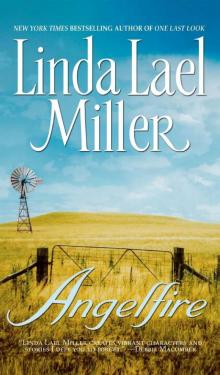 Angelfire
Angelfire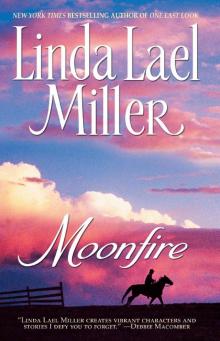 Moonfire
Moonfire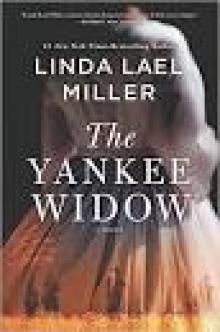 The Yankee Widow
The Yankee Widow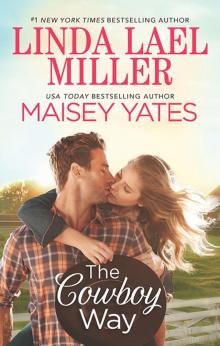 The Cowboy Way
The Cowboy Way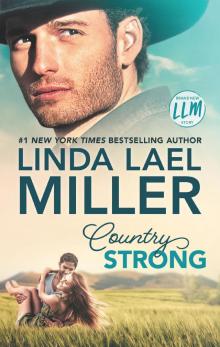 Country Strong--A Novel
Country Strong--A Novel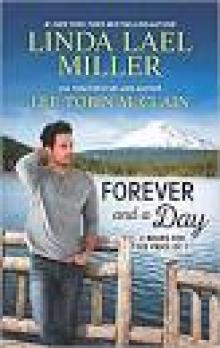 Forever and a Day
Forever and a Day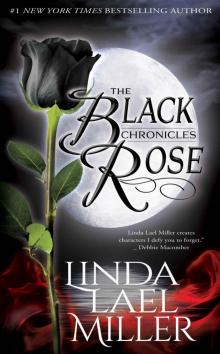 The Black Rose Chronicles
The Black Rose Chronicles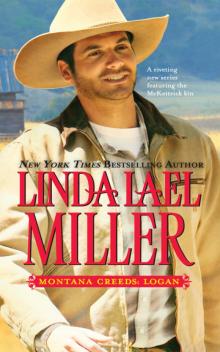 Montana Creeds: Logan
Montana Creeds: Logan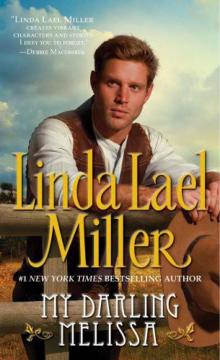 My Darling Melissa
My Darling Melissa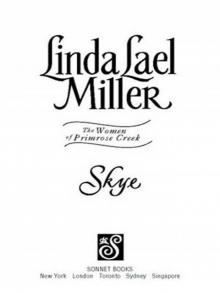 Skye
Skye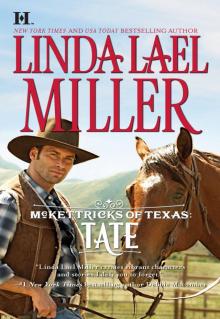 McKettricks of Texas: Tate
McKettricks of Texas: Tate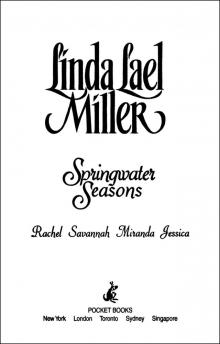 Springwater Seasons
Springwater Seasons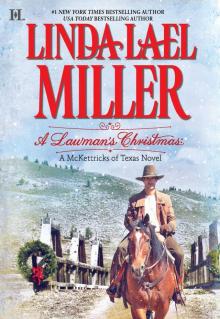 A Lawman's Christmas
A Lawman's Christmas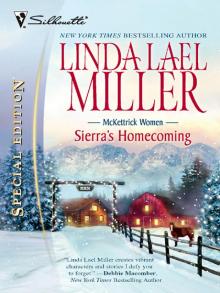 Sierra's Homecoming
Sierra's Homecoming![Parable, Montana [4] Big Sky Summer Read online](http://i1.bookreadfree.com/i/03/22/parable_montana_4_big_sky_summer_preview.jpg) Parable, Montana [4] Big Sky Summer
Parable, Montana [4] Big Sky Summer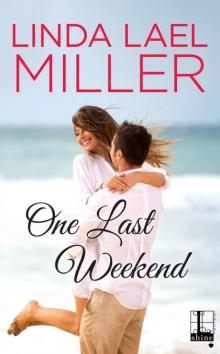 One Last Weekend
One Last Weekend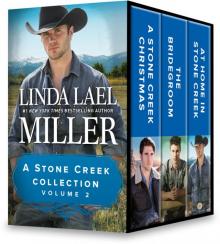 A Stone Creek Collection, Volume 2
A Stone Creek Collection, Volume 2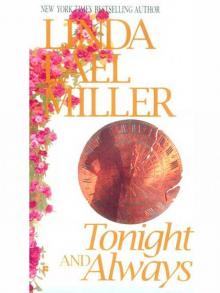 Tonight and Always
Tonight and Always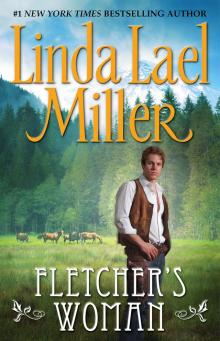 Fletcher's Woman
Fletcher's Woman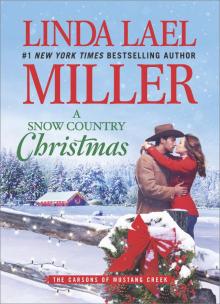 A Snow Country Christmas
A Snow Country Christmas The Last Chance Cafe
The Last Chance Cafe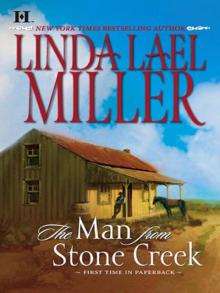 The Man from Stone Creek
The Man from Stone Creek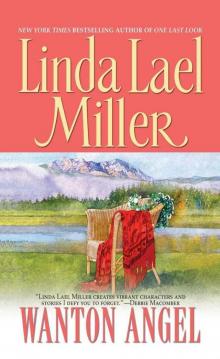 Wanton Angel
Wanton Angel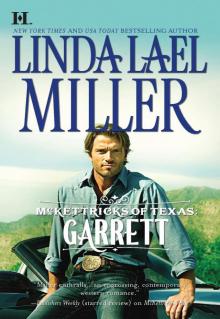 McKettricks of Texas: Garrett
McKettricks of Texas: Garrett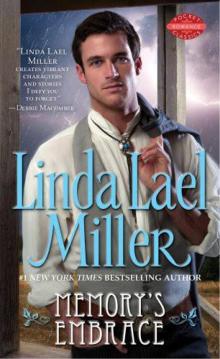 Memory's Embrace
Memory's Embrace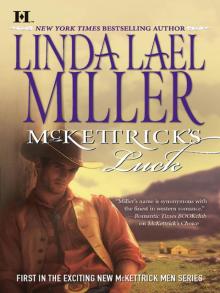 McKettrick's Luck
McKettrick's Luck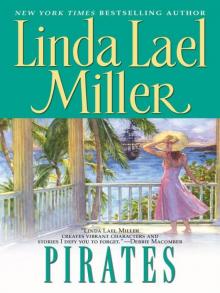 Pirates
Pirates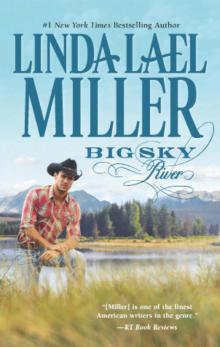 Big Sky River
Big Sky River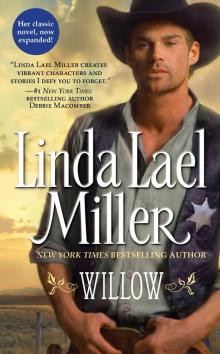 Willow: A Novel (No Series)
Willow: A Novel (No Series)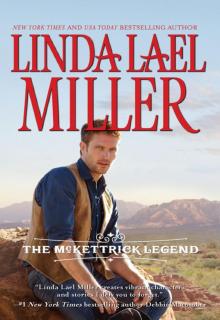 The McKettrick Legend: Sierra's HomecomingThe McKettrick Way (Hqn)
The McKettrick Legend: Sierra's HomecomingThe McKettrick Way (Hqn)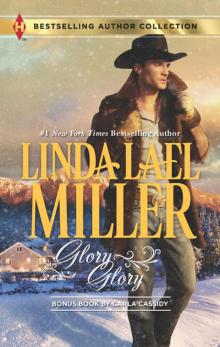 Glory, Glory: Snowbound with the Bodyguard
Glory, Glory: Snowbound with the Bodyguard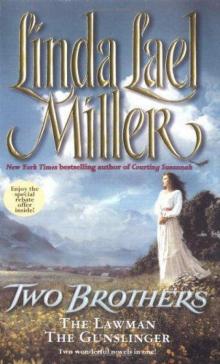 Two Brothers
Two Brothers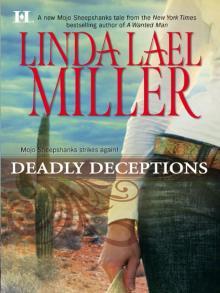 Deadly Deceptions
Deadly Deceptions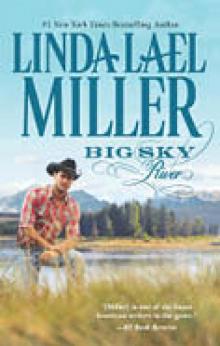 Big Sky Secrets
Big Sky Secrets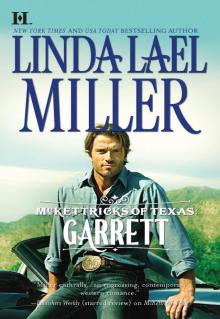 Garrett
Garrett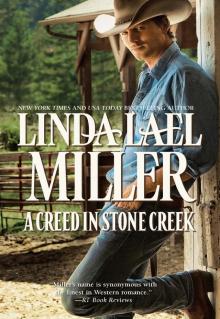 A Creed in Stone Creek
A Creed in Stone Creek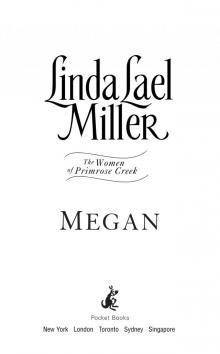 Megan
Megan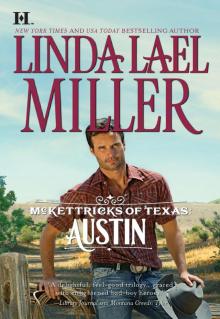 McKettricks of Texas: Austin
McKettricks of Texas: Austin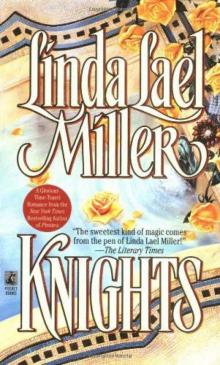 Knights
Knights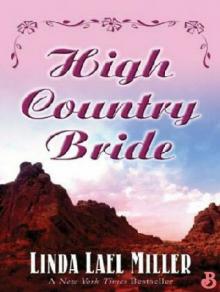 High Country Bride
High Country Bride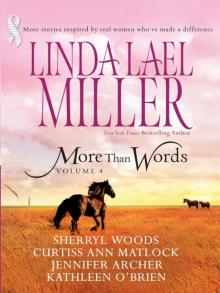 More Than Words Volume 4
More Than Words Volume 4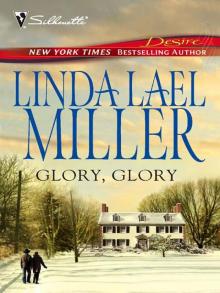 Glory, Glory
Glory, Glory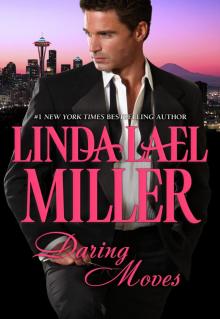 Daring Moves
Daring Moves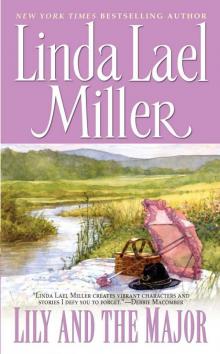 Lily and the Major
Lily and the Major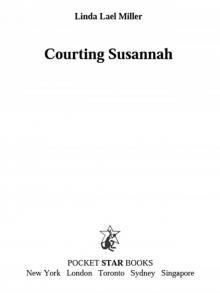 Courting Susannah
Courting Susannah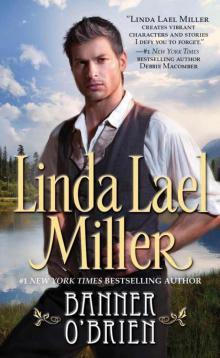 Banner O'Brien
Banner O'Brien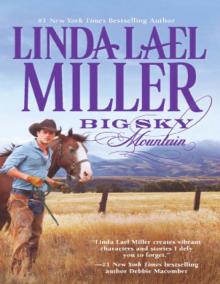 Big Sky Mountain
Big Sky Mountain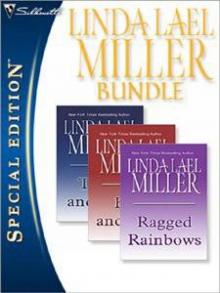 Linda Lael Miller Bundle
Linda Lael Miller Bundle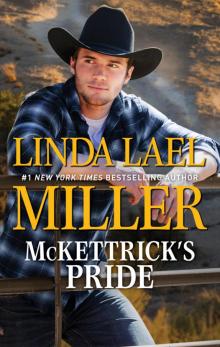 McKettrick's Pride
McKettrick's Pride A Stone Creek Collection Volume 1
A Stone Creek Collection Volume 1 A Wanted Man
A Wanted Man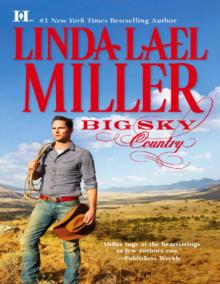 Big Sky Country
Big Sky Country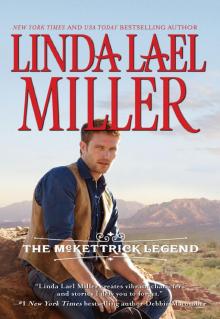 The McKettrick Legend
The McKettrick Legend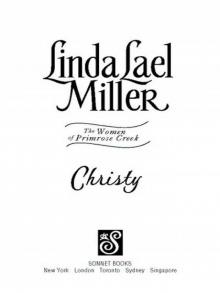 Christy
Christy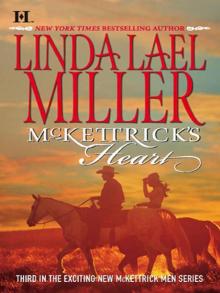 McKettrick's Heart
McKettrick's Heart Resurrection
Resurrection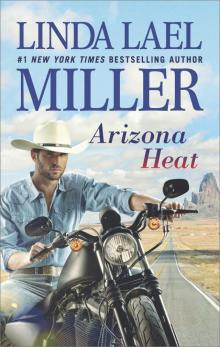 Arizona Heat
Arizona Heat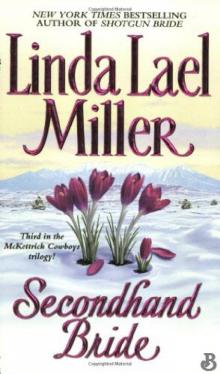 Secondhand Bride
Secondhand Bride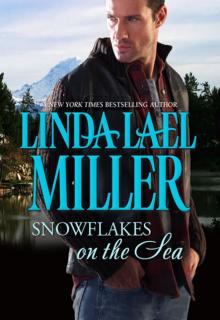 Snowflakes on the Sea
Snowflakes on the Sea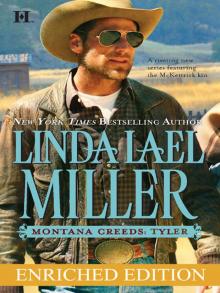 Montana Creeds: Tyler
Montana Creeds: Tyler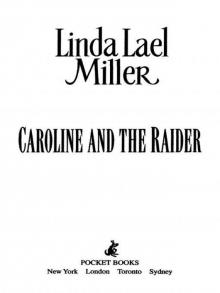 CAROLINE AND THE RAIDER
CAROLINE AND THE RAIDER A Proposal for Christmas: State SecretsThe Five Days of Christmas
A Proposal for Christmas: State SecretsThe Five Days of Christmas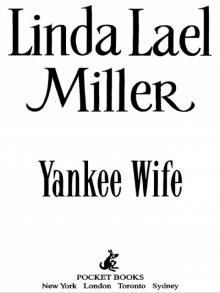 Yankee Wife
Yankee Wife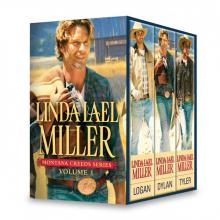 Linda Lael Miller Montana Creeds Series Volume 1: Montana Creeds: LoganMontana Creeds: DylanMontana Creeds: Tyler
Linda Lael Miller Montana Creeds Series Volume 1: Montana Creeds: LoganMontana Creeds: DylanMontana Creeds: Tyler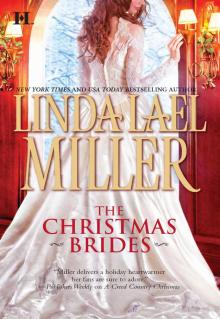 The Christmas Brides
The Christmas Brides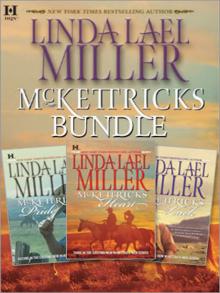 McKettricks Bundle
McKettricks Bundle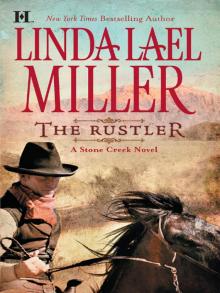 The Rustler
The Rustler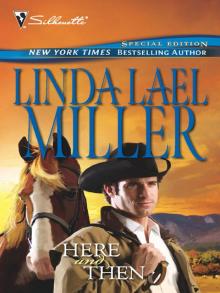 Here and Then
Here and Then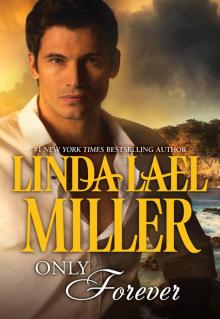 Only Forever
Only Forever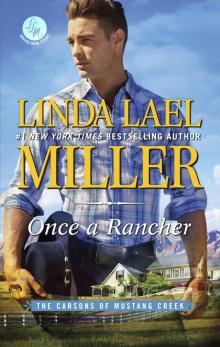 Once a Rancher
Once a Rancher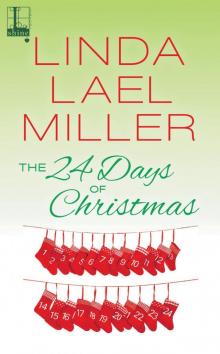 The 24 Days of Christmas
The 24 Days of Christmas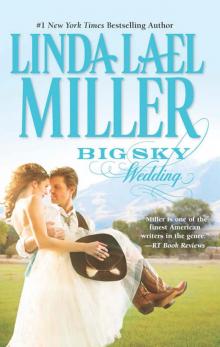 Big Sky Wedding
Big Sky Wedding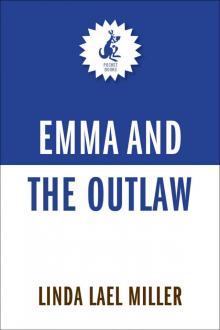 Emma and the Outlaw
Emma and the Outlaw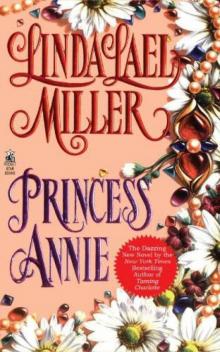 Princess Annie
Princess Annie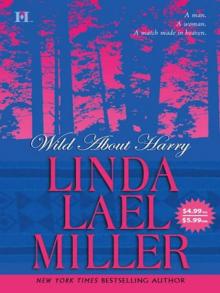 Wild About Harry
Wild About Harry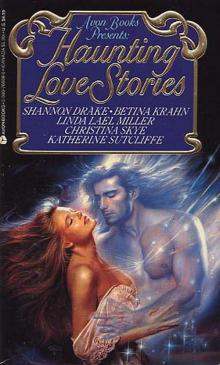 That Other Katherine
That Other Katherine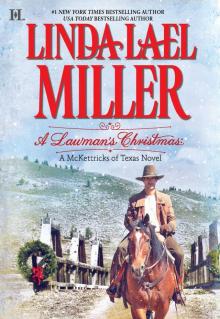 A Lawman's Christmas: A McKettricks of Texas Novel
A Lawman's Christmas: A McKettricks of Texas Novel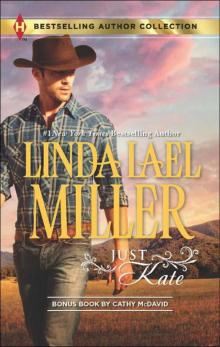 Just Kate: His Only Wife (Bestselling Author Collection)
Just Kate: His Only Wife (Bestselling Author Collection)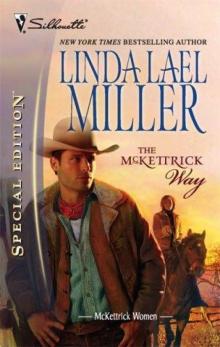 The McKettrick Way
The McKettrick Way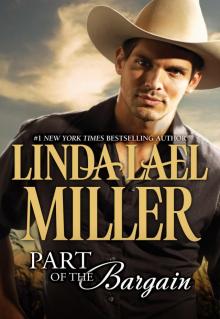 Part of the Bargain
Part of the Bargain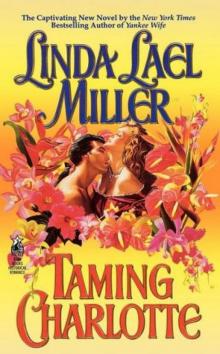 Taming Charlotte
Taming Charlotte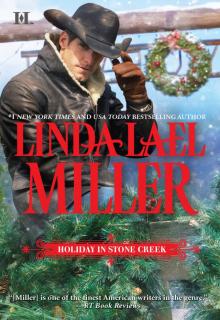 Holiday in Stone Creek
Holiday in Stone Creek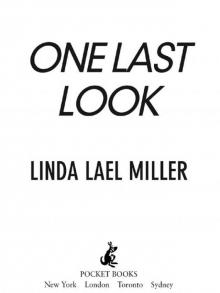 One Last Look
One Last Look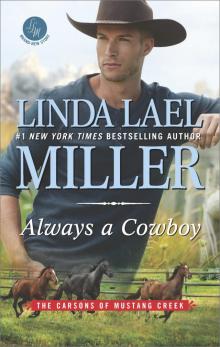 Always a Cowboy
Always a Cowboy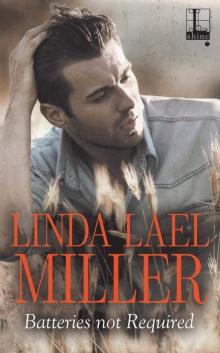 Batteries Not Required
Batteries Not Required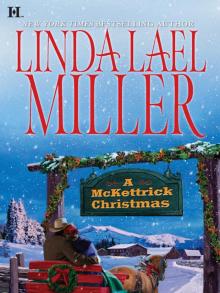 A McKettrick Christmas
A McKettrick Christmas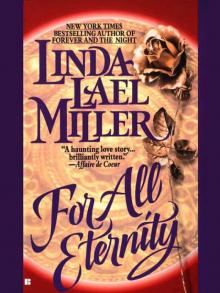 For All Eternity
For All Eternity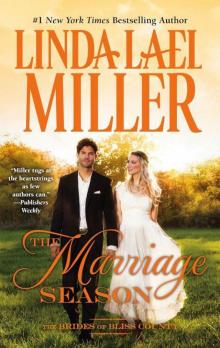 The Marriage Season
The Marriage Season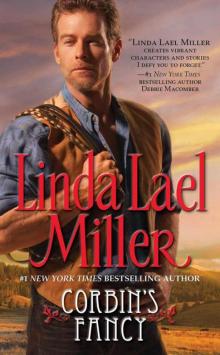 Corbin's Fancy
Corbin's Fancy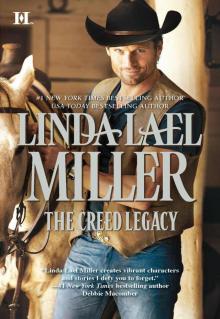 The Creed Legacy
The Creed Legacy Springwater Wedding
Springwater Wedding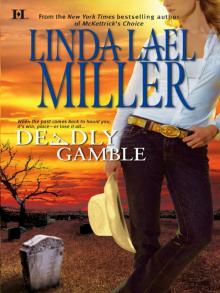 Deadly Gamble
Deadly Gamble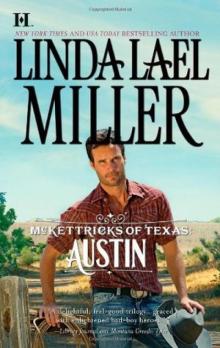 Austin
Austin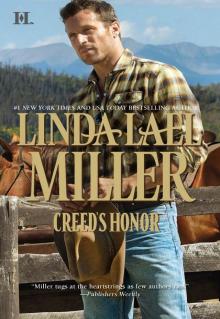 Creed's Honor
Creed's Honor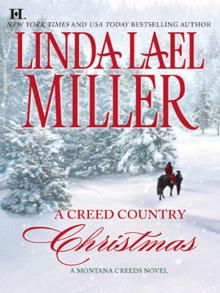 A Creed Country Christmas
A Creed Country Christmas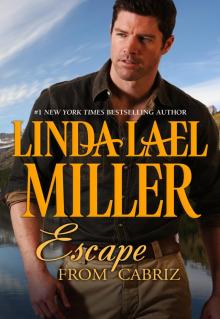 Escape from Cabriz
Escape from Cabriz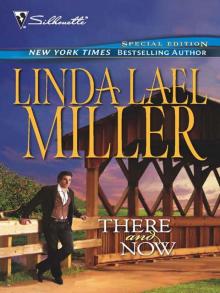 There and Now
There and Now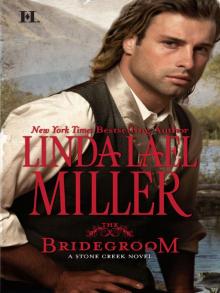 The Bridegroom
The Bridegroom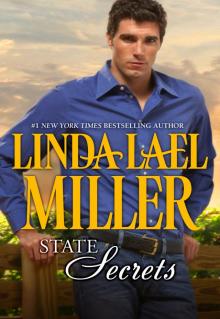 State Secrets
State Secrets Bridget
Bridget